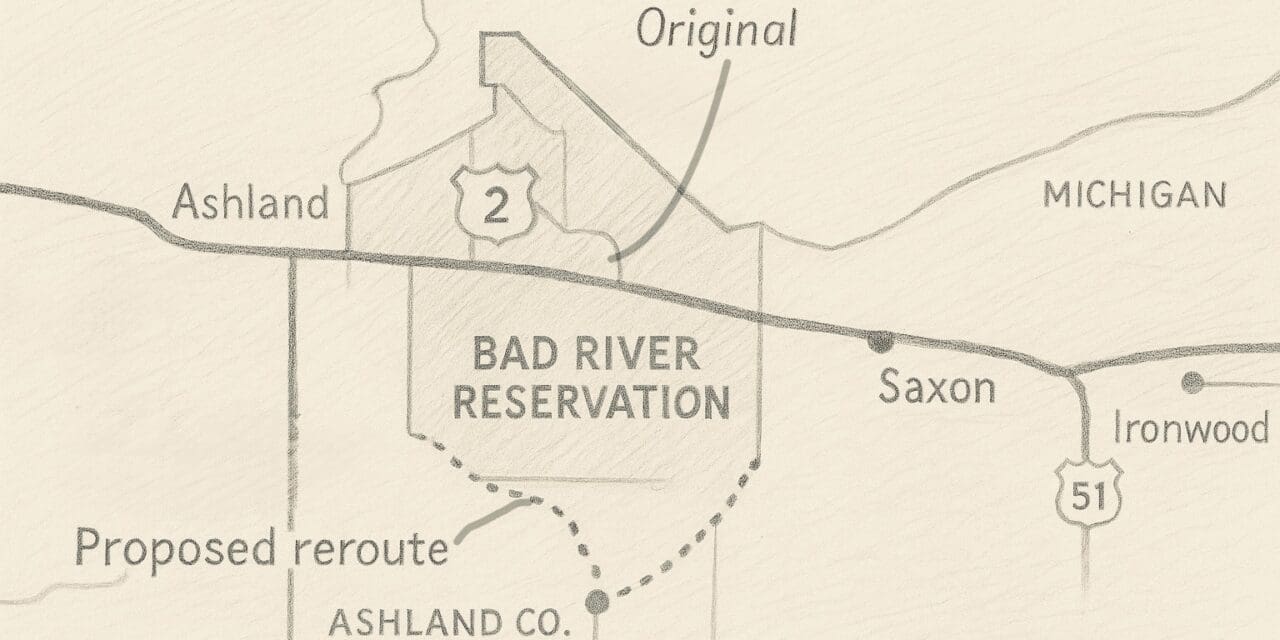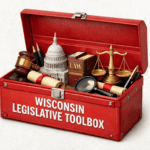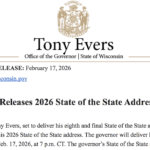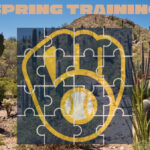The Line 5 relocation project, proposed by Enbridge Energy, LLC, is under scrutiny this week as the U.S. Army Corps of Engineers holds a virtual public hearing on May 13-14, 2025, to evaluate whether the pipeline’s construction would violate the Bad River Band of Lake Superior Chippewa’s water quality standards. The hearing follows a rigorous four-year review process and recent state approvals, but the Bad River Band’s concerns about downstream environmental impacts continue to delay or derail the project.
Background on Line 5
Operational since 1953, Line 5 is a 645-mile pipeline that transports up to 540,000 barrels per day of light crude oil, light synthetic crude, and natural gas liquids from Superior, Wisconsin, to Sarnia, Ontario. A critical energy lifeline for the Upper Midwest, it supplies crude oil for refined fuels and natural gas liquids for propane production. The pipeline crosses 12 miles of the Bad River Reservation, where expired easements and environmental risks have sparked legal battles.
In 2019, the Bad River Band sued Enbridge, alleging trespassing on tribal land. A federal judge in 2023 ordered Enbridge to remove the pipeline from the reservation within three years, prompting the company to propose a 41-mile reroute to replace a 20-mile segment, including the 12 miles within the reservation. The new route, entirely outside the reservation’s boundaries in Ashland and Iron counties, aims to address tribal concerns while maintaining energy flow.
Relocation Issues and Environmental Concerns
The relocation project has polarized stakeholders. Supporters, including labor unions, agricultural groups, and small businesses, argue it ensures energy reliability and economic benefits, such as 700 union jobs and millions in local construction spending. Critics, led by the Bad River Band argue that even the rerouted pipeline threatens their treaty rights and natural resources.
The Wisconsin Department of Natural Resources (DNR) approved key permits in November 2024, including a wetland and waterway permit with over 200 conditions and a Wisconsin Pollution Discharge Elimination System (WPDES) permit for construction stormwater. The DNR’s 898-page final Environmental Impact Statement (EIS), released in September 2024, concluded the project could be completed with minimal environmental impact, supported by a 2-to-1 margin of public comments during its 2022 comment period. However, the Bad River Band has filed legal challenges, alleging the DNR’s EIS violates the Wisconsin Environmental Policy Act and that the permits fail to protect water quality.
The U.S. Army Corps of Engineers Hearing
The ongoing federal review hinges on a permit from the U.S. Army Corps of Engineers, required under Section 404 of the Clean Water Act for discharging dredged or fill material into U.S. waters. The Corps’ draft Environmental Assessment in May 2024 described construction impacts on water quality as “minor, localized, and temporary,” but the Bad River Band’s objection letter to the Corps and the U.S. Environmental Protection Agency (EPA) claims that Enbridge’s construction practices could harm downstream water quality on the reservation, 1 to 12 miles from the project site.
The virtual hearing, prompted by the Band’s objection under Section 401 of the Clean Water Act, will allow testimony from the Bad River Band, Enbridge, the EPA, and the public. The Corps must determine if the project complies with tribal water quality standards before issuing the permit. A decision against the project could halt construction, while approval would clear a major hurdle for supporters of the plan.
Voices from the Coalition
A coalition of over two dozen Wisconsin organizations, including the Wisconsin Farm Bureau Federation, Wisconsin Propane Gas Association, and Great Lakes Timber Professionals Association, supports the project. Henry Schienebeck, Executive Director of the Great Lakes Timber Professionals Association, emphasized the DNR’s “rigorous” process, which included multiple public hearings and over 200 environmental safeguards. He called claims of environmental risk “unfounded” and warned that blocking the project could harm industries reliant on responsible land use.
Neil Sickich, a Bayfield County resident and Business Agent with Steamfitters 601, expressed confidence in Enbridge’s environmental practices, citing his firsthand experience on pipeline projects. He criticized opponents for using “absurd arguments” that could stifle regional development. Terry McGowan of the International Union of Operating Engineers Local 139 acknowledged the Band’s desire to remove Line 5 from their reservation but cautioned that altering standard construction practices could impede all development in northern Wisconsin.
The coalition highlighted Line 5’s role in propane supply, noting a warning from Plains Midstream that rejecting the relocation could trigger a propane shortage and price spikes in Wisconsin.
The Bad River Band’s Position
The Bad River Band remains steadfast in its opposition, arguing that the reroute still crosses the Bad River watershed. The Band’s legal actions include a contested case hearing against the DNR’s permits and a lawsuit alleging deficiencies in the EIS. Environmental groups like Earthjustice, representing the Band, and Clean Wisconsin have signaled potential federal challenges if the Corps approves the permit.
What’s Next?
The outcome of the Corps’ hearing and subsequent permit decision will be pivotal. Construction cannot begin until all federal and state permits are secured, and ongoing litigation may further delay or alter the project. As the debate continues, the Line 5 relocation project remains a flashpoint for balancing energy needs, environmental protection, and tribal sovereignty in Wisconsin.
Get our FREE Weekday Wisconsin Newsletter















